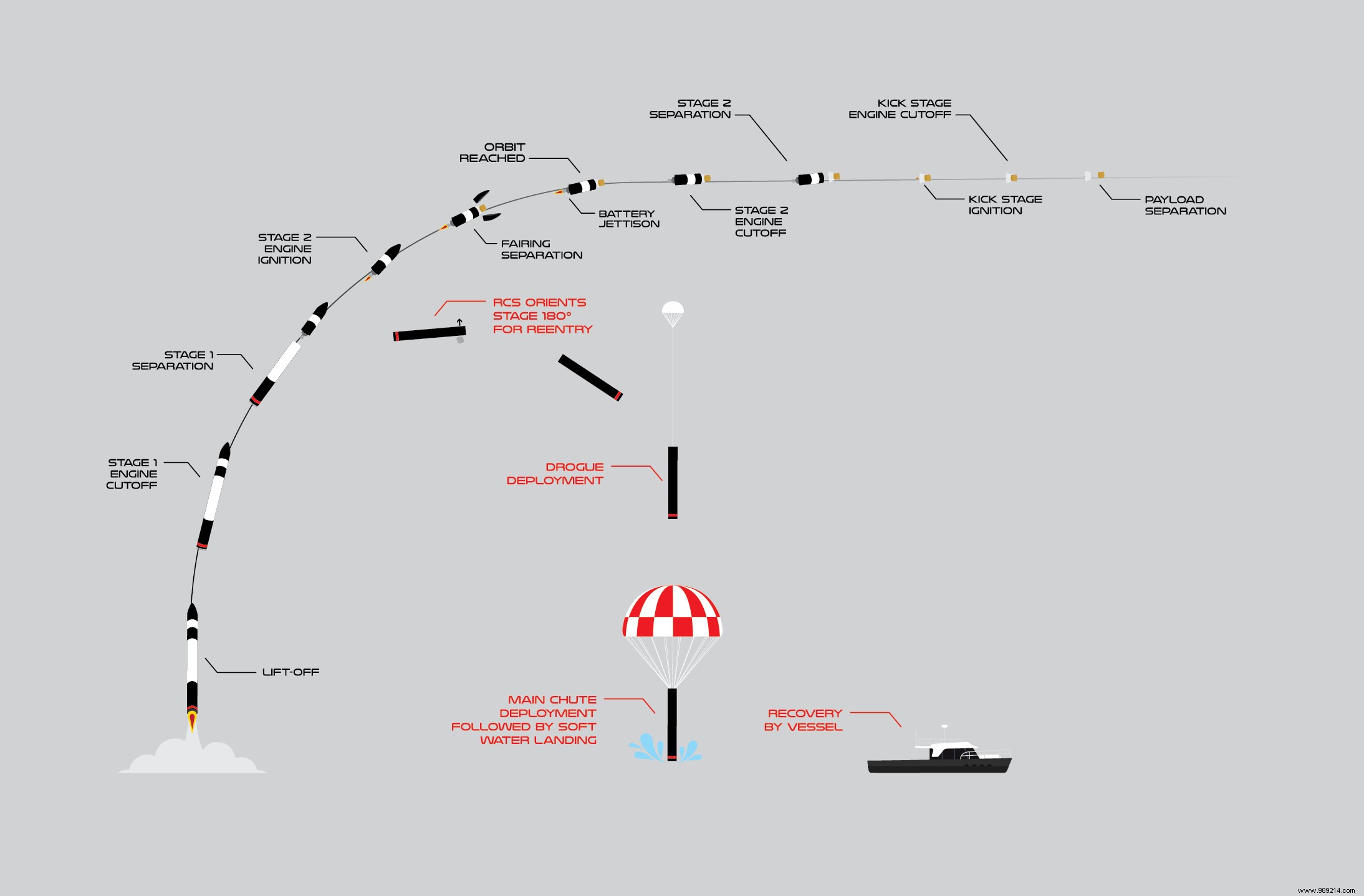Rocket Lab, a young aerospace company specializing in sending small payloads, will attempt to recover the first stage of its Electron rocket for the first time in a few days thanks with parachutes.
For several years, SpaceX has been revolutionizing the aerospace market by considerably lowering the price of launches into orbit thanks to the reuse of the first stages of its rockets. The latest flight, operated this Thursday, November 5 on behalf of the US Space Force, also marked the 64th successful recovery of a Falcon first stage since 2015 .
Of course, other public and private agencies have since tried to develop similar structures. In particular, we know that China is working on its own reusable booster, as is the Russian state company Roscosmos, which recently unveiled its "Amur" project to us. But these two agencies are not the only ones.
Rocket Lab, a young private company, specializes in sending small payloads. After a failed launch into orbit with its Electron rocket in the spring of 2017, the company recorded a first success in January 2018 during the second test of its launcher. He then placed three small CubeSat format satellites.
Since then, the company has been progressing. Its Electron rocket continued to orbit satellites on behalf of several agencies. It has also just won a contract with NASA to send a CubeSat – the size of a microwave oven – into lunar orbit. Finally, we know that Peter Beck, founder and CEO of Rocket Lab, would also like to drop a probe into the clouds of Venus.
In short, the company already has some impressive achievements to its credit, and plenty of projects ahead. But to do this, it will have to be competitive (there is a strong demand for this type of launch). With this in mind, Rocket Lab has been thinking for some years about different methods to recover the first stages of its rockets , as SpaceX does so well. And the big day is coming soon.
Indeed, the company announced on Thursday that it would attempt to recover the first stage of its Electron launcher as part of its next mission, scheduled for mid-November. Concretely, Rocket Lab engineers developed a plan according to which the first stage would be launched and separated from the second Electron stage, as usual, at an altitude of 80 km. Then it's about using thrusters to reorient the "engine part" upside down.
Then, and unlike SpaceX's Falcon 9 rocket, Electron's nine first-stage engines will not fire. Rocket Lab is betting on the deployment of a first small parachute, then a second (main). If all goes well, the first stage of the rocket should then fall back into the ocean (see diagram below).

Peter Beck said on a conference call with reporters that he wasn't sure what the company was going to fish out of the ocean. He hopes, of course, that his first floor will be intact. The key to this test, he said, will be to collect data on the parachute system. Once back in the ocean, the vehicle will then be recovered by a dedicated vessel, before being repatriated to a factory in New Zealand for analysis.
Finally, note that in the long term, it is expected that these first stages will not be repatriated by ships, but that they will be "caught" directly in flight by a helicopter before they do not submerge in the ocean, the aim being to minimize the potential damage inflicted by seawater on the structures.